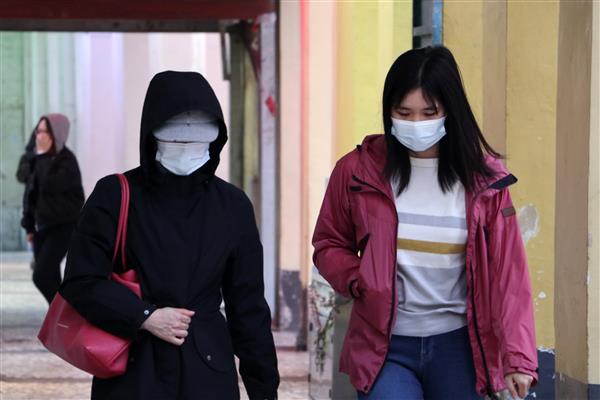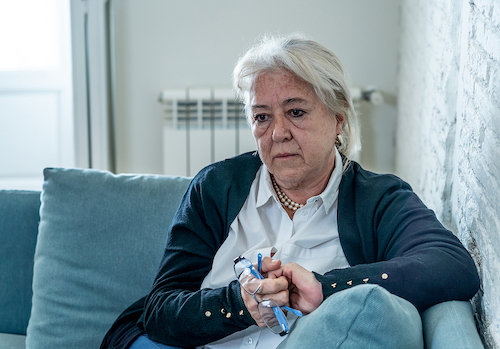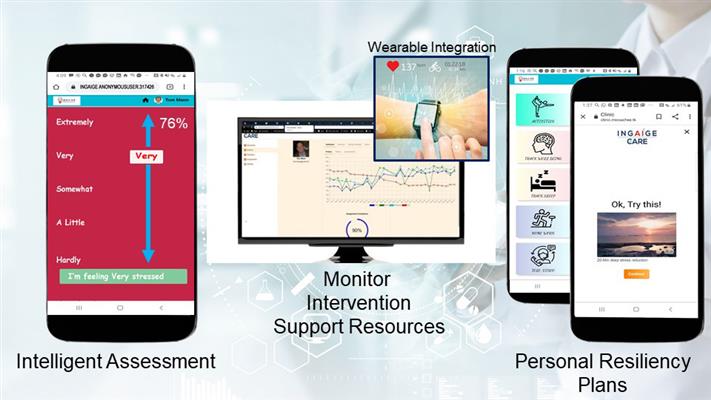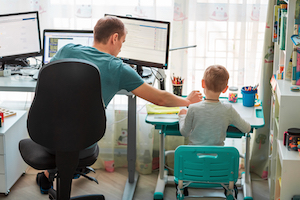August 31, 2020
by Elizabeth Pratt

Nine out of ten people with experience of eating disorders are dealing with profoundly negative impacts due to the COVID-19 pandemic.
A study from Northumbria University in the UK found that as well as affecting the general population around the world, the pandemic is causing additional and unique challenges for those experiencing eating disorders.
[More]
August 14, 2020
by Tina Arnoldi

Guidelines around COVID-19 have changed, but many places now require that masks are worn to reduce the chances of transmission. A recent study looked at American individualism to determine its impact as a predictive variable for COVID-19 response and found that higher individualism lessened compliance by 41%
[More]
July 24, 2020
by Elizabeth Pratt

More than one million Americans have lost a close relation due to COVID-19, and that number is likely to rise.
An analysis from the University of Southern California found that on average, for every COVID-19 death, there are nine people left to grieve. These include parents, grandparents, siblings, spouses and children.
[More]
July 10, 2020
by Tina Arnoldi

Some Americans have a stronger faith as a result of the COVID-19 pandemic, according to a new Pew Research Center survey. Experts offer several reasons for this resurgence, including a need for stability, having more time to think about deeper matters, and as a response to an unknown crisis. Once the pandemic is behind us, there are mixed opinions about whether this increase in faith will last.
[More]
July 3, 2020
by Tina Arnoldi

Recently, I came across INGAIGE, described by co-founder Tom Mann, as "a mental health app that is ONLY for health care workers and helps them cope with stress, anxiety, depression and burnout that is unique to their jobs using AI and custom designed evidence based tools."
[More]
June 23, 2020
by Patricia Tomasi

A pair of new studies conducted on behalf of the not-for-profit Canadian Men’s Health Foundation (CMHF) looked at how COVID-19 is affecting fathers in Canada. “The impact of stress resulting from an unexpected change on the health and well-being of men and fathers was under reported in the research and media landscape,” Joanne Watson of the CMHF told us. “We wanted to understand more than just anecdotal information, such that men, and fathers in particular, were being impacted by the public health measures, including the economic, social and cultural restrictions."
[More]
June 12, 2020
by Tina Arnoldi

Some Americans say their religious faith has strengthened as a result of the outbreak, even though churchgoers report that their congregations have stopped in-person worship services, according to a new Pew Research Center survey. What is it about a crisis that causes people to think more about their spiritual life?
[More]
June 10, 2020
by Elizabeth Pratt

A survey from the American Psychological Association (APA) found the pandemic is taking a toll on the mental health of parents. Almost half of parents with children aged less than 18 report their stress relating to the COVID19 pandemic is high.
[More]
May 15, 2020
by Tina Arnoldi

There is no shortage of need in our communities, especially around COVID-19
And previous research has shown that volunteering improved depression, life satisfaction, and wellbeing. A more recent study found that volunteering increases people’s sense of ‘mattering’ and boosts well-being in a time of crisis. I invited people to share their perspectives on the benefits of volunteering and how it improves mental health.
[More]
May 8, 2020
by Tina Arnoldi

According to a recent study by Cigna, more than half of Americans experience loneliness. While connections are as important to well being as they were a hundred years ago, our modern society has contributed to weaker social connections. The negative consequences of loneliness are physical, resulting in increased inflammation, as well as mental.
[More]